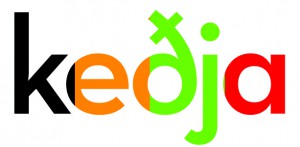keðja was initiated by 6 dance organisations that wanted to develop the informal sporadic “Nordic Dance Meetings” that took place between 1999 to 2006. EU support was granted from late 2007 to the end of 2010. In 2011 the activities were funded almost entirely by Nordic and Danish funds.
Video by DoublExpose that sums up the 2008-2011 activities:
keðja dance encounters from Ronit Meranda on Vimeo.
2008 Dance Encounters
keðjaVilnius programme Arts Printing House, Lithuania, May 2008
keðjaVilnius proceedings
keðjaCopenhagen programme Danish National School for Contemporary Dance, September 2008
keðjaCopenhagen proceedings
2009 Dance Encounters
keðjaKuopio programme Kuopio Music Centre, Finland, June 2009
keðjaKuopio proceedings
keðjaOslo programme Dansens Hus/Oslo School of Architecture & Design, Norway, October 2010
Video: keðjaOslo
keðjaOslo proceedings
2010 Dance Encounters and Workshops
keðjaUmeaa programme Midgårdsskolan, Sweden, May 2010
kedjaUmeaa, proceedings
keðjaReykjavik programme Tjarnarbio, Iceland October 2010
keðjaReykjavik proceedings
Desription Capacity Building Workshops. Tallinn. Riga
Conclusions: Making Dance Infrastructure Gertrude Street Theatre, Riga, November 2010
Summary: Taking matters into your own hands Tallinn, November 2010
2011 Dance Encounter
keðja aarhus programme Instititut for (X), September 2011
Video: keðja aarhus graphic recording
keðja aarhus proceedings
Taskforce
A Task Force og 4 highly qualified people who each have vast experience within cultural analysis and politics was connected to the keðja project 2008-2010.
- The Task Force acted as an advisory board monitoring the project, its activities and outcome.
- The Task Force observed, listened, questioned and reflected on the project and offered constructive criticism.
- The Task Force worked as an outside eye providing the participants and organisers with analysis and recommendations, suggest ing ways of increasing coherence between artistic visions generated in the encounters and financial and infrastructural possibilities.
- The Task Force helped stimulate the growth of new opportunities for the development of mobility and co-operation within the Nordic-Baltic dance area and provided recommendations about the further course of the keðja project
The Task Force members were: Dragan Klaic (chair)
- CVDragan Klaic in Memoriam
- Bjørn Lense-Møller
- Ritva Mitchell www.cupore.fi / Annika Levin
- John Ashford

